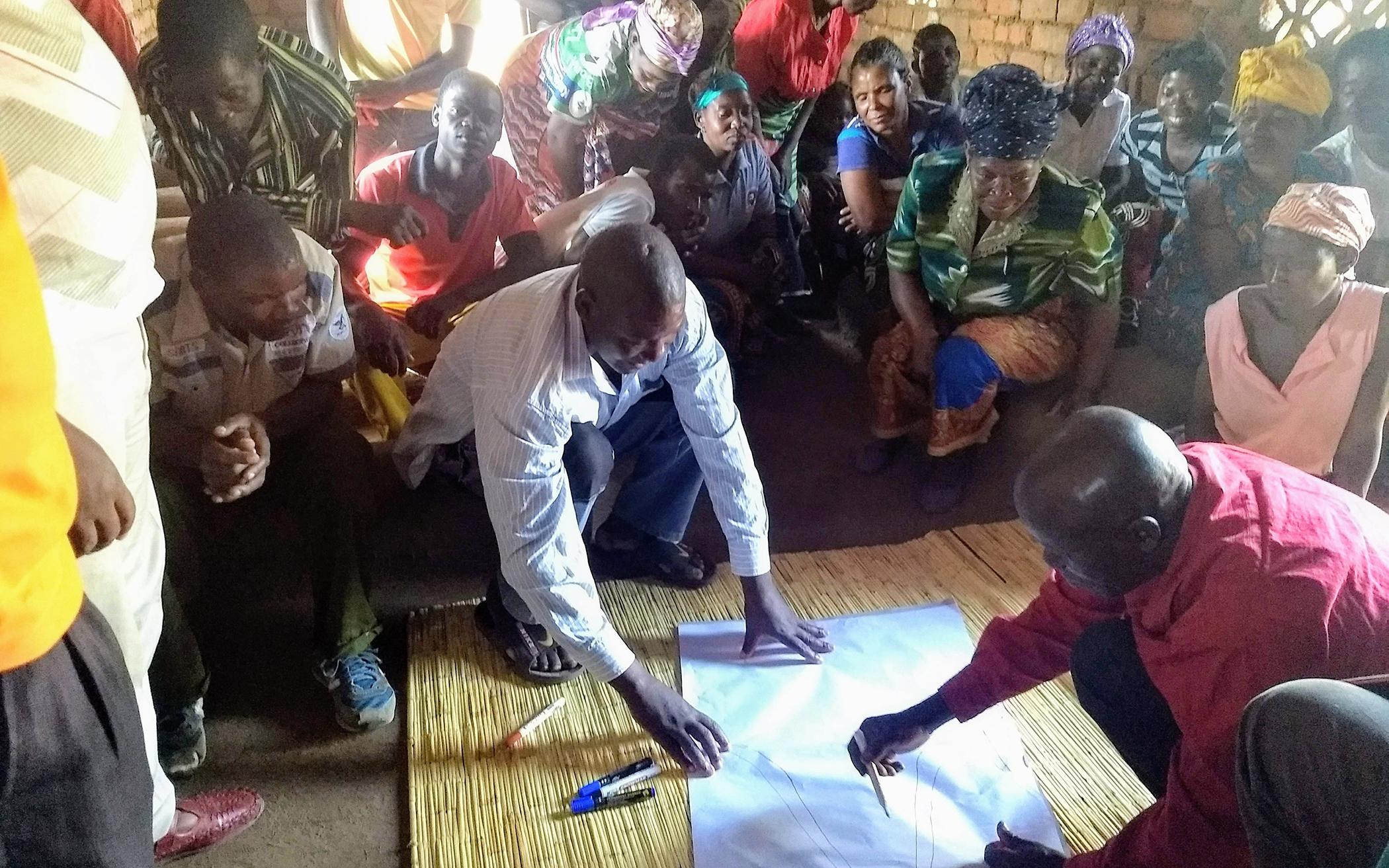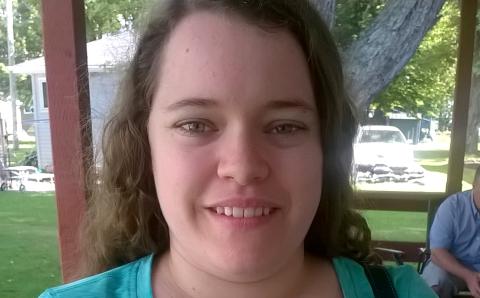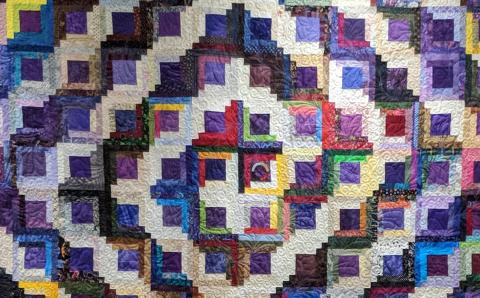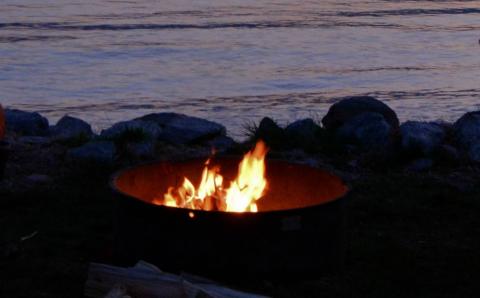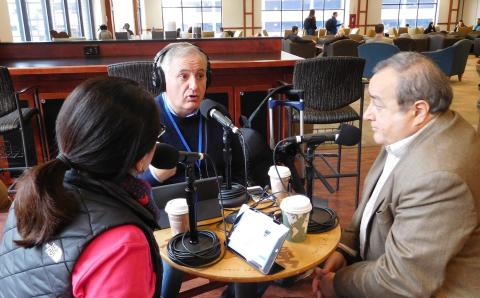Last November, Alberto Sairessi had a life-changing experience. At 51 years old, the father of six in Mozambique was asked his opinion.
Sairessi was part of a community visioning and planning session offered by World Renew and its local partner in Mozambique.
“I didn’t know how to make community plans,” said Sairessi. “Many have visited us in the past, and I always waited for them to come up with a vision and plans. I thought people from the outside would have better vision and plans for us.”
But this session was different. After going through a visioning process, community members were able to create a plan based on their own priorities: a proper school for their children and a community trust fund to help their community’s most vulnerable. Sairessi was delighted. A process he had thought impossible was not.
“Personally,” he said, “this experience was a learning opportunity, and I hope to share it with other communities while continuing to motivate my own community. I feel transformed!”
Sairessi hadn’t engaged in improving his community because he didn’t believe he could. But with encouragement from World Renew, his beliefs about himself had been upended and he was energized and hopeful. He had a vision and was ready to share it with others.
World Renew has a vision too: a world where people experience and extend Christ's compassion and live together in hope as God's community. They claim God’s deep passion for justice and mercy as their motivation.
“As God’s imagebearers, we don’t just observe God’s justice and mercy. We inhabit it,” explained Ida Kaastra-Mutoigo, World Renew co-director. “We own it because we belong to God. Justice and mercy are as much a part of our identity as being God’s beloved.”
Mutoigo supported this idea by pointing to Ephesians 2:8-10: “For by grace you have been saved through faith, and this is not your own doing; it is the gift of God—not the result of works, so that no one may boast. For we are what he has made us, created in Christ Jesus for good works, which God prepared beforehand to be our way of life.”
The contemporary testimony of the Christian Reformed Church, Our World Belongs to God, also reaffirms this identity as God’s creation and beloved children, she said. It tells us we are “made in God’s image . . . appointed earthkeepers and caretakers.” It goes on to claim our identity as God’s covenant partners: “set free for joyful obedience, we offer our hearts and lives to do God’s work in the world. With tempered impatience, eager to see injustice ended, we expect the Day of the Lord.”
“Our identity in Christ is much on the minds of World Renew as we seek to renew hope, restore creation, and reconcile lives around the world,” said Kaastra-Mutoigo. “Our staff sees that poverty of the mind can separate God’s children from their belovedness as much as poverty of the body. Warped worldviews such as ‘I deserve what I have because I have worked hard for it’ or ‘I was fated to to be poor’ distort our true identity in Christ and thwart the Spirit’s fruit of justice and mercy.”
“Changing these mindsets is essential if one wants to find long-term, sustainable solutions to disaster and poverty,” she concluded.
Compelled by God’s longing for justice for all of his children, World Renew asks people to consider how often their own actions perpetuate a certain story and how they can better help people see the truth about the world and themselves.
“In pursuing community development, responding to disaster, and advocating for peace and justice, we want people to know the truth of their identity in Christ as beloved children of his father,” said Kaastra-Mutoigo.
Not far from the shores of Lake Victoria in northern Tanzania, the church in Mwembeni had not fully embraced its status as a covenant partner with God. Entirely focused on prayer and preaching, the local church was not serving people in need. In April of last year, World Renew engaged the local church in Truth Centered Transformation, a holistic discipleship program.
Truth Centered Transformation programming is designed to equip churches in small, poor, highly collective rural communities apply God’s truth to their lives, reach out and serve their communities, and learn basic life skills.
As church members focused on the truths of God’s Word, they began to confront distorted ideas like “we are born poor and we will die poor” and “we are too poor to give.” Instead they started to acknowledge the gifts they had been given by God, embracing their status as justice seekers and caretakers for their fellow persons.
Soon church members began to provide food to widows, children, and the elderly. They carried water. They repaired a neighbor’s damaged house. Not surprisingly, the Mwembeni church began to receive new members. More importantly, church members powerfully experienced “joyful obedience.”
In Uganda, Catherine Anaso and David Alele’s relationship was once fractured and tense, even abusive. Social norms and deep-seated beliefs about men and women and their roles and relationships were draining their marriage of any joy and undermining their identities as imagebearers of God.
They wanted for their marriage what Christ wants for all of us: “to lead a life worthy of the calling to which you have been called, with all humility and gentleness, with patience, bearing with one another in love, making every effort to maintain the unity of the Spirit in the bond of peace” (Eph. 4:1-3).
When these parents of three young children embarked on Stepping Stones training with World Renew, they had to confront the poverty of their own minds that was fostering their unhappy relationship. Eighteen weeks of personal reflection brought big changes for their marriage. “There are so many changes,” laughed Anaso. “Should I mention them all?”
As part of the Stepping Stones training, Anaso confronted her own belief that only men can earn money. She joined the Oriam Can (“Chase Away Poverty”) village savings and loan association, started buying and smoking fish, and began contributing to the household income. Alele confronted his own beliefs about a man’s role in the family and began helping with household chores.
Together, they decided to use their new income to pay school fees for their children, affirming their decision that children should not be sources of labor but cared for and educated. With renewed respect for themselves and each other as children of God, the couple now enjoy trust and faithfulness, allowing them to make plans together, share confidences, and welcome others into their home.
Sometimes God’s thirst for justice brings World Renew into the realm of law and the justice of human courts. In many countries around the world, for example, climate challenges and population growth make land an increasingly precious resource. People who are poor and vulnerable find themselves exploited and abused.
Following the call of Our World Belongs to God, World Renew vows to “call on all governments to do public justice and to protect the rights and freedoms of individuals, groups, and institutions so that each may do their tasks.”
For the last decade, World Renew Laos has worked to improve land security for vulnerable people groups in the mountain districts of Phongsaly and Xiangkhouang. With promises of better access to education in the lowlands, those in power have been trying to move these ethnic people groups to the valley in order to claim the mountain land for commercial plantations.
World Renew has answered these attempts by helping to build schools in the mountain villages and assisting tribal farmers in the adoption of sustainable farming practices that have helped them outpace large commercial enterprises. In the past year, land-use mapping is helping farmers rotate their fields more productively and may help the farmers’ case to the government. The people of Phongsaly and Xiangkhouang are leaning into their identities as equally cherished children of God and caretakers of the earth.
World Renew sees itself as covenant partners in the renewal of God’s creation and the restoration of his children’s true identities.
“It’s our privilege at World Renew,” added Kaastra-Mutoigo, “to bring the good, biblical news of God’s kingdom justice, of God’s kingdom abundance, of God’s forgiveness in Christ to all.”
About the Author
Sara DeBoer, World Renew

